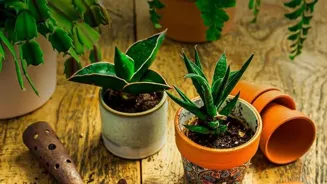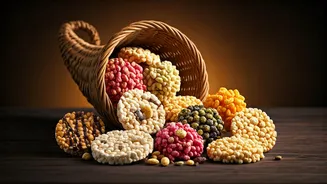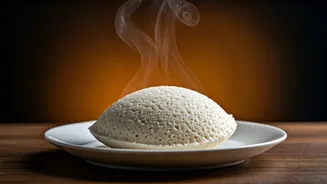Discover 5 Unique Gardening Hacks for a Lush Home Garden in India! Learn budget-friendly tips tailored to Indian climate
Unique Gardening Hacks Every Indian Should Know for a Lush Home Garden
Transform small
spaces into lush gardens with Indian-friendly hacks
In the heart of every Indian home, there's a yearning for a touch of nature - a vibrant green space where one can unwind, breathe in fresh air, and reconnect with the earth. But often, city life and space constraints make the dream of a lush garden seem distant. Fear not, gardening enthusiasts!
With a few clever hacks, even the smallest balcony or terrace can transform into a thriving oasis. These aren't your typical gardening tips; they're time-tested, budget-friendly, and tailored for the Indian climate and resources. Get ready to unlock the secrets to a flourishing home garden!
From innovative composting techniques to utilizing kitchen waste, these hacks are designed to make gardening accessible and enjoyable for everyone. So, put on your gardening gloves, grab your trowel, and let's dive into the world of green thumbs!
Turmeric: a powerful ally in gardening for healthier plants
Turmeric, the golden spice found in every Indian kitchen, isn't just a flavour enhancer; it's a powerful ally in your gardening journey. This humble spice possesses potent antiseptic and antifungal properties, making it an effective, natural solution to combat common soil problems.
Indian soils, especially in urban areas, often suffer from fungal infections and pest infestations, hindering plant growth. Turmeric can come to your rescue acting as a natural disinfectant. Just mix a teaspoon of turmeric powder into a liter of water and use it to drench the soil of your plants.
This helps to prevent fungal diseases like root rot and damping off, promoting healthier roots and stronger plants. Turmeric also acts as a natural insect repellent, keeping away pesky ants and other soil-borne pests.
Besides that, if you happen to be experimenting with the propagation of plants through cuttings or through air layering, turmeric powder also can be used as a rooting agent to ensure faster and healthier growth and development of plants.
The antiseptic properties also help to protect the newly formed roots from any external injury that it can be exposed to. Imagine your plants thriving, free from disease, thanks to a simple, readily available ingredient from your kitchen!
Onion peels make potent fertilizer for plant growth
Don't throw away those onion peels! They're a treasure trove of nutrients for your plants. Onion peels are rich in potassium, calcium, magnesium, and iron – all essential for plant growth and overall health. Instead of discarding them, turn them into a potent, organic fertilizer.
Soak the onion peels in water for 24-48 hours. This allows the water to extract the valuable nutrients from the peels. Strain the water and use it to water your plants. Onion peel fertilizer promotes strong root development, vibrant foliage, and abundant flowering.
It's particularly beneficial for flowering plants like roses, hibiscus, and jasmine. You can also directly bury onion peels in the soil around your plants. As they decompose, they slowly release nutrients into the soil, providing a sustained source of nourishment.
This method is especially effective for plants that need a continuous supply of potassium, like tomatoes and peppers. Furthermore, onion peels consist of compounds that help to deter certain pests from attacking your plants.
Rice water: a natural, cost-effective fertilizer for plant growth
The water you use to rinse your rice before cooking is another hidden gem for your garden. Rice water is packed with carbohydrates, vitamins, and minerals that promote plant growth and boost overall health.
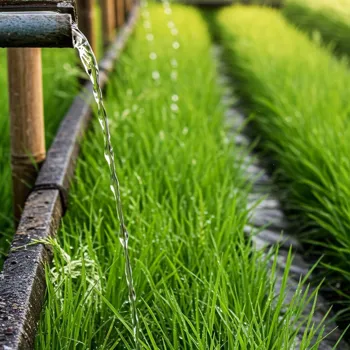
This simple kitchen ingredient is extremely effective as a cost-effective and eco-friendly way to revitalize your plants. The trick here is to use the rice water after rinsing raw rice, and not the water used to boil rice with salt.
It's a gentle, organic fertilizer that's suitable for all types of plants, from seedlings to mature plants. Use the rice water to water your plants, just like you would with regular water. It's particularly beneficial for leafy greens, like spinach and lettuce, as it promotes lush, green growth.
Rice water also strengthens plant stems and leaves, making them more resistant to diseases and pests. It can also improve the soil texture by encouraging growth that is beneficial to the plants.
Moreover, rice water adds a healthy dose of carbohydrates which is important for plant growth and improves the root development of plants.
Start seeds in eco-friendly newspaper pots for easy transplanting
Starting seeds can be tricky, but with this hack, it becomes a breeze. Instead of buying plastic seedling pots, use newspaper to create your own biodegradable containers. It's an eco-friendly and cost-effective way to start your seeds.
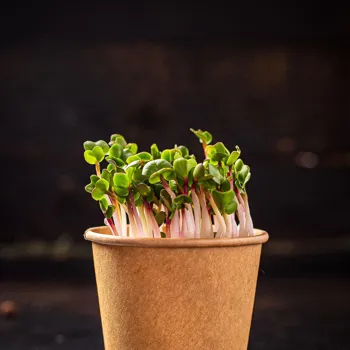
Simply cut strips of newspaper, roll them into small cylinders, and fold the bottom of each cylinder to create a pot. Fill the newspaper pots with potting soil and sow your seeds. Newspaper pots allows the roots to grow through easily.
When it's time to transplant your seedlings into larger pots or directly into the garden, you can plant the entire newspaper pot along with the seedling. The newspaper will decompose over time, enriching the soil and providing nutrients to the plant.
You will also be contributing in small ways to the environment. This eliminates the need to remove the seedling from the pot, which can damage the delicate roots.
This hack is perfect for starting herbs, vegetables, and flowers, and it's especially useful for plants that don't like to have their roots disturbed during transplanting, such as tomatoes and cucumbers.
Eggshells: valuable source of calcium for plant growth
Eggshells are more than just waste; they're a rich source of calcium carbonate, an essential nutrient for plant growth. Calcium strengthens cell walls, improves root development, and helps plants resist disease. Don't toss those eggshells; turn them into a valuable soil amendment.
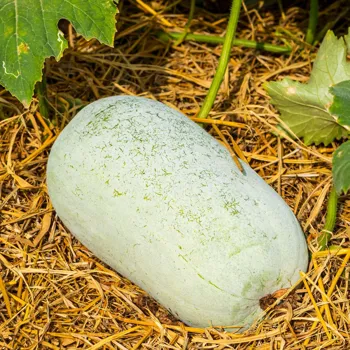
Crush the eggshells into small pieces and sprinkle them around the base of your plants. As they decompose, they release calcium into the soil, gradually nourishing your plants. You can also grind the eggshells into a fine powder and mix it into your potting soil before planting.
This ensures that your plants have access to a steady supply of calcium from the start. Eggshells are particularly beneficial for tomatoes, peppers, and eggplants, as they help prevent blossom-end rot, a common problem caused by calcium deficiency.
Moreover, the sharp edges of crushed eggshells can help deter slugs and snails from attacking your plants.
Five gardening hacks using kitchen items create sustainable home gardens in India
These five unique gardening hacks offer a simple, sustainable way to create a flourishing home garden in India. The best part is you get to utilize simple kitchen ingredients and household items that would normally be thrown away.
By embracing these time honoured methods, you can cultivate a thriving green space, promote sustainability, and connect with nature, right in the heart of your home. Happy gardening!
